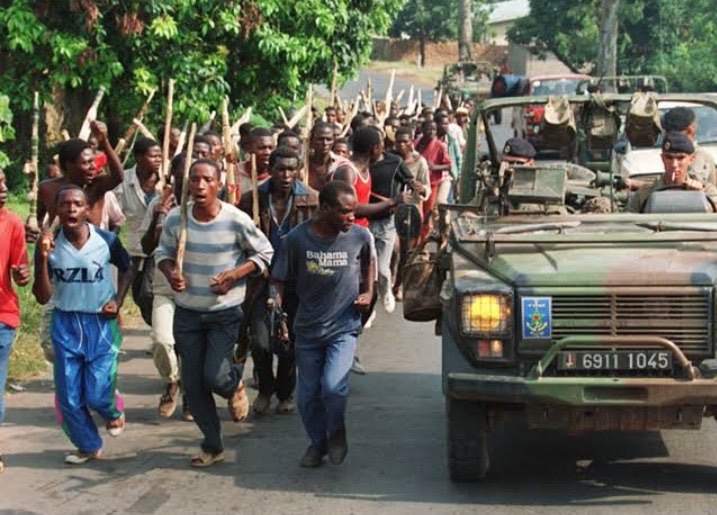During the Rwandan genocide, which resulted in the deaths of between 800,000 to 1 million people, world leaders, despite being aware of the genocide, largely remained indifferent and did not intervene.
The United Nations, for an extended period, hesitated to use the term “genocide,” a reluctance reportedly influenced by the United States. Moreover, the United States was among the countries that were reluctant to send their troops to Rwanda.
Ban Ki-moon, the then Secretary-General of the United Nations, on the 20th anniversary of the genocide, stated, “The international community’s failure to prevent the genocide still haunts us.”
Before the genocide began (in early 1994), the UNAMIR force commander, General Roméo Dallaire, had received credible security information about the impending massacre and knew about the stockpiling of weapons like machetes. From January to March, he sent five messages to the United Nations Security Council, warning them about the weapons stockpile and requesting permission to seize these weapons and to expand his forces’ mandate to potentially prevent the genocide. However, those requests were ignored, and warnings were neglected.
When the genocide commenced, UNAMIR and the Belgian government withdrew their peacekeepers.
The French and Belgian peacekeepers, not willing to assist the Tutsis, evacuated foreign nationals in vehicles, leaving behind a small contingent of UNAMIR forces in Kigali, who sheltered thousands of people in locations like “Hôtel des Mille Collines” and “Amahoro Stadium.”
In a notable exception, at the École Technique Officielle (ETO) in Kigali, soldiers guarding about 2,000 people abandoned their posts under the pretext of evacuating foreign nationals, resulting in a massacre at the school.
The French government, recognizing the plan to annihilate the Tutsis and pressuring President Habyarimana’s government, eventually acted independently from the rest of the international community in the early days of the killings. France regarded the Rwandan Patriotic Front (RPF) as a threat to French influence in Africa.
Eventually, on May 17, 1994, the United Nations imposed an arms embargo on Rwanda and decided to reinforce UNAMIR. However, new troops did not start arriving until June, by which time the majority of the genocide had already occurred.
Throughout this period, Western media outlets described the genocide as “civil war” or “tribal warfare,” diminishing the systemic aspect of the killings.
